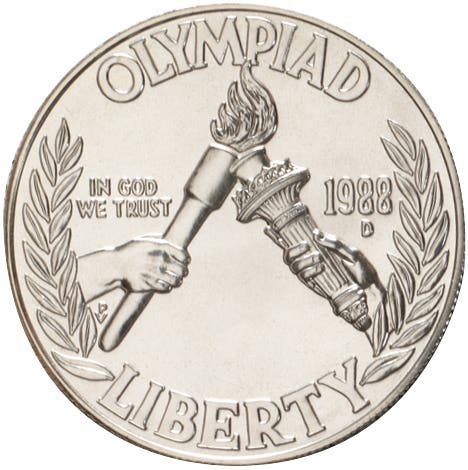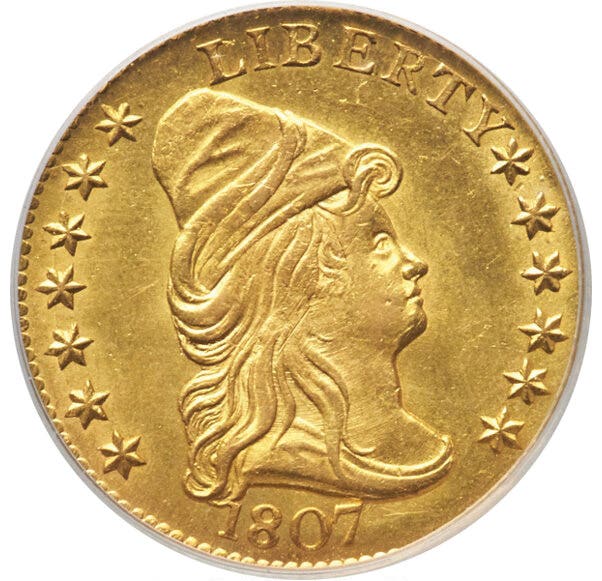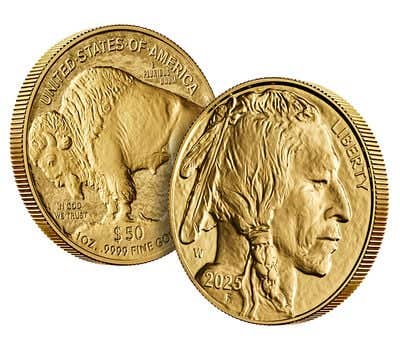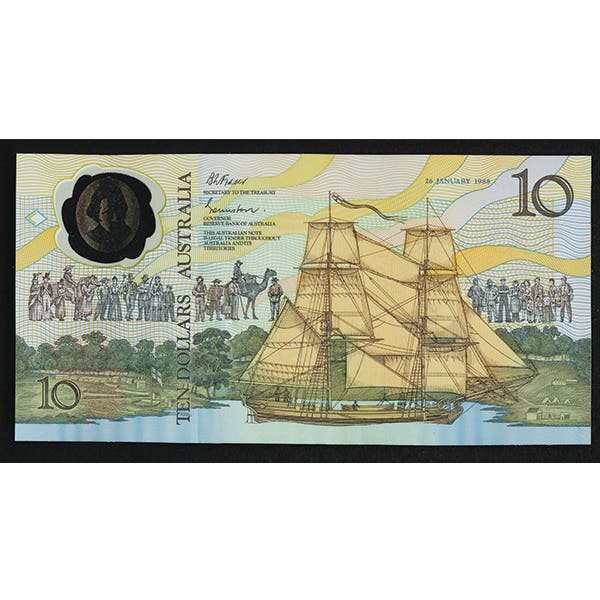This Week’s Letters (11/19/08)
A selection of letters from readers of Numismatic News to editor Dave Harper.
History no justification for opposing KJB coin
As James Sparks took issue with a letter written by John Murphy promoting a commemorative coin honoring the King James Bible, I now take issue with James for his rationale against this coin. Personally, I think a coin of this type like many modern commems really doesn’t need to be issued. It seems like just another sales opportunity for the Mint. However, using historical revisionism as justification for not issuing it as Mr. Sparks has done is wrong.
First off, arguing that the tenets of Christianity weren’t followed by our nation’s founders in the writing of their documents because most of them were deists and did not believe in a literal interpretation of the Bible is like arguing that because I drive a Chevy I won’t know how to drive a Ford. A belief in the deity of Jesus Christ isn’t necessary to believe in the value of the Bible; even Islam holds the gospels to be prophetic. Try reading some of Franklin’s writings on the subject of Jesus and Christianity some time, or some of Washington’s prayers, or the last paragraph of Jefferson’s Danbury Baptist Association letter to see what the founding father’s thought.
Secondly, hearing that most of the founding fathers were deists – without any proof to support the statement – is getting a bit old. Combining the signers of the Declaration of Independence, signers of the Articles of Confederation and the framers of the Constitution gives a total of six known deists and 106 men who professed to one of the Christian denominations. Even if you add the other 17 men whose religious affiliation is unknown, the deist side falls far short of being the majority you claim.
Finally, citing the treaty with Tripoli is hardly a slam dunk for your viewpoint. Considering the nature of the treaty, the time it was written, and the state of our merchant and naval fleets, it seems more worded for political expediency than anything else. There are far too many other documents written by the founding fathers starting decades earlier which show a belief in and a respect for the Bible and Christianity. Washington’s inaugural is one that comes to mind (an event that was immediately followed by the President and Congress all attending a sermon at St. Paul’s Church in NYC). Oh, yes. Your statement that the only mention of religion in the Constitution is one of exclusion is also wrong. The establishment clause as interpreted by Jefferson’s 1802 letter to the Danbury Baptist’s actually is in support of religion, not its exclusion. The separation viewpoint wouldn’t exist for at least another 150 years.
Joe Paonessa
Racine, Wis.
Early coins didn’t bear ‘In God We Trust’ motto
I am writing this letter in response to “Don’t use coins if you don’t believe in God” by Martin Goetz (Nov. 11 issue).
In the first place, it is hard not to use coins whether you are a believer, a non-believer, or just a doubter. I do believe that the Mint is supported by taxpayers, some of whom are non-believers. Goetz has the situation reversed. It is the theists who force their views on the atheists by forcing them to use coins that have the motto “In God We Trust.” It is a case of majority authoritarianism. The majority of the people in the United States believe in God or at least consider God a possibility. Therefore they can put “God” wherever they want, no matter what minority atheists might think. How would you like to be a politician and vote against God?
Every numismatist knows that early U.S. coins did not have the “motto.” The Buffalo nickel did not have the “motto.” As far as the motto being around forever; when I was a kid, I bought candy bars with newly minted Buffalo nickels without the “motto.” These Buffaloes were readily accepted by “believer merchants.”
According to Goetz, they (the “motto”) are just words. If so, why put them on coins, paper money, or anything else for that matter? To make things right, the Mint ought to mint at least one coin denomination without the “motto.” The number of these coins could be proportional to the number of atheist taxpayers in the country. The value of the metal in the coins should be equal to he face value of the coin at the time of mintage. Because, well, if you can’t trust in God ... ?
Thank you for your consideration,
Kendell A. Dickinson
Lakewood, Colo.
Interesting article has questionable photo
The story about the 1844-O Proof Eagle in the Oct. 28 issue of Numismatic News is very interesting. What is more interesting is the photograph of Paul Hollis on page 54 that shows him holding a coin that looks to me to be the size of a Quarter Eagle.
Name withheld
Danbury, Conn.
Early U.S. leaders not opposed to Christianity
This letter is in response to James Sparks’ letter that appeared in the Oct. 28 issue. Though I am rather ambivalent to the idea of a King James Bible commemorative, I was rather shocked by his letter until I noted his residency.
Let me take exception to several points in his letter. It is true that some of our founding fathers (i.e. Thomas Jefferson, George Washington and Benjamin Franklin) adhered to the deist philosophy of Enlightenment, which was a popular intellectual movement in Europe at the time. John Adams, for instance, was quite Christian.
Mr. Sparks refers to the Treaty of Tripoli as proof that our early leaders rejected Christianity, which is simply revisionist history and disingenuous at best. At the time, all merchant fleets in the Mediterranean were plagued by the Barbary pirates.
All European nations paid large tributes to them to avoid being molested. Adams and Jefferson found this repulsive and their first reaction was to fight rather than pay such tribute. In the end, they realized that cost of building a navy sufficient for the purpose was beyond the fledgling young nation’s abilities.
The Tripoli Treaty of 1797 was not an affirmation of the United States being a non-Christian nation but an accommodation with a group of Muslim pirates. U.S. Marines, however, voided this treaty in 1805.
Mr. Sparks may well be advised to study Washington’s Farewell Address, where he stated, “let us with caution indulge the supposition that morality can be maintained without religion.” Washington firmly believed that the nation required religious observance to maintain its guiding principles. He would have been appalled with the concept of a Godless nation or government. Though he did not specify the creation of a particular sect as a state sponsored one, he would have endorsed the will of the majority to commingle their faith with their official acts.
Since the City of San Francisco has been in an open state of rebellion against the federal government for some time, I am not surprised by Mr. Sparks’ comments. I’m certain it will only be a matter of time until his city begins issuing its own currency and coin.
John Wilson
Houston, Texas









